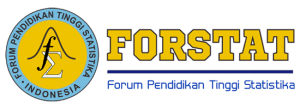Faktor-Faktor yang Memengaruhi Foerign Direct Investment (FDI) di Enam Koridor Ekonomi Indonesia: Market Seeking atau Resource Seeking?
DOI:
https://doi.org/10.34123/jurnalasks.v9i1.92Keywords:
Foreign Direct Investment (FDI), Indonesian economic corridors, panel data regression, market seeking, resource seekingAbstract
The economic development of a country depends on the amount of foreign direct investment (FDI), including in the Indonesian six economic corridors. The huge gaps of conditions in economic corridors are expected to differences infactors affecting the FDI-inflow into the corridors. This study uses a panel data regression to analyze factors behind the FDI-inflow in each economic corridor and to determine the FDI characteristic in each economic corridor. It shows that the proportion of government capital expenditure, number of highly-educated labor force, trade openness, and the proportion of oil and mineral export affect the FDI-inflow only in some economic corridors. Furthermore, it indicates that, while market seeking FDI occurred in all Indonesian economic corridors, resource seeking FDI was only found in Sulawesi, Maluku and Papua economic corridors.
Downloads
References
Asiedu, E. 2006. Foreign Direct Investment in Africa: The Role of Natural Resources, Market Size, Government Policy, Institutions and Political Instability. working paper. United Nation University. (diakses 25 Juni 2016). people.ku.edu/~asiedu/world-economy.pdf
Asiedu, E. dan Lien, D.D. 2010. Democracy, Foreign Direct Investment and Natural Resources. Working paper. (diakses 1 Agustus 2016). http://papers.ssrn.com/sol3/papers.cfm?abstract_id=1726587
Badan Pusat Statistik. (2006-2014). Keadaan Angkatan Kerja di Indonesia. Jakarta: BPS
Badan Pusat Statistik. (2007-2015). Statistik Indonesia. Jakarta: BPS
Briguglio, L. 2016. Small States And The European Union: Economic Perspectives New York: Routledge
Dunning, J. H. 1993. The Globalization of Business. (diaskses 25 Juni 2016). http://unctad.org/en/PublicationChapters/iteiitv3n1a3_en.pdf
Jadhav, P. 2012. Determinants of Foreign Direct Investment in BRICS economies: Analysis of Economics, Institutional, and Political Factor. Procedia – Social and Behavioral Science. 37, 5-14. (diakses 26 Januari 2016). http://www.sciencedirect.com/science/article/pii/S1877042812007495
Kemenkeu. 2011. Klasifikasi Jenis Belanja. (diakses 29 Juni 2016). http://www.jdih.kemenkeu.go.id/fullText/2011/101~PMK.02~2011PerLamp%20III
Rohmana, Y. 2011. Analisis Faktor-Faktor yang Mempengaruhi Investasi Asing Langsung di Indonesia Periode 1980-2008. Jurnal Sains dan Terapan. 6(2). Universitas Pendidikan Indonesia (UPI) Bandung. (diakses 8 Februari 2015). http://jurnal.upi.edu/2022/view/1119/analisis-faktor-faktor-yang-mempengaruhi-investasi-asing-langsung-di-indonesia-periode-1980-2008.html
Sarwedi. 2002. Investasi Asing Langsung di Indonesia dan Faktor yang Mempengaruhinya. Jurnal Akuntansi & Keuangan. 4(1), 17–35 Jurusan Ekonomi Akuntansi, Fakultas Ekonomi - Universitas Kristen Petra.
Setiawan, G. 2002. The Impact of Foreign Direct Investment on Indonesian Economic Growth. Tesis. Seoul: KDI (Korea Development Institute) School of Public Policy and Management.
Todaro, M.P. dan Smith, S.C. 2003. Pembangunan Ekonomi di Dunia Ketiga: Jilid 1. Jakarta: Erlangga.
















